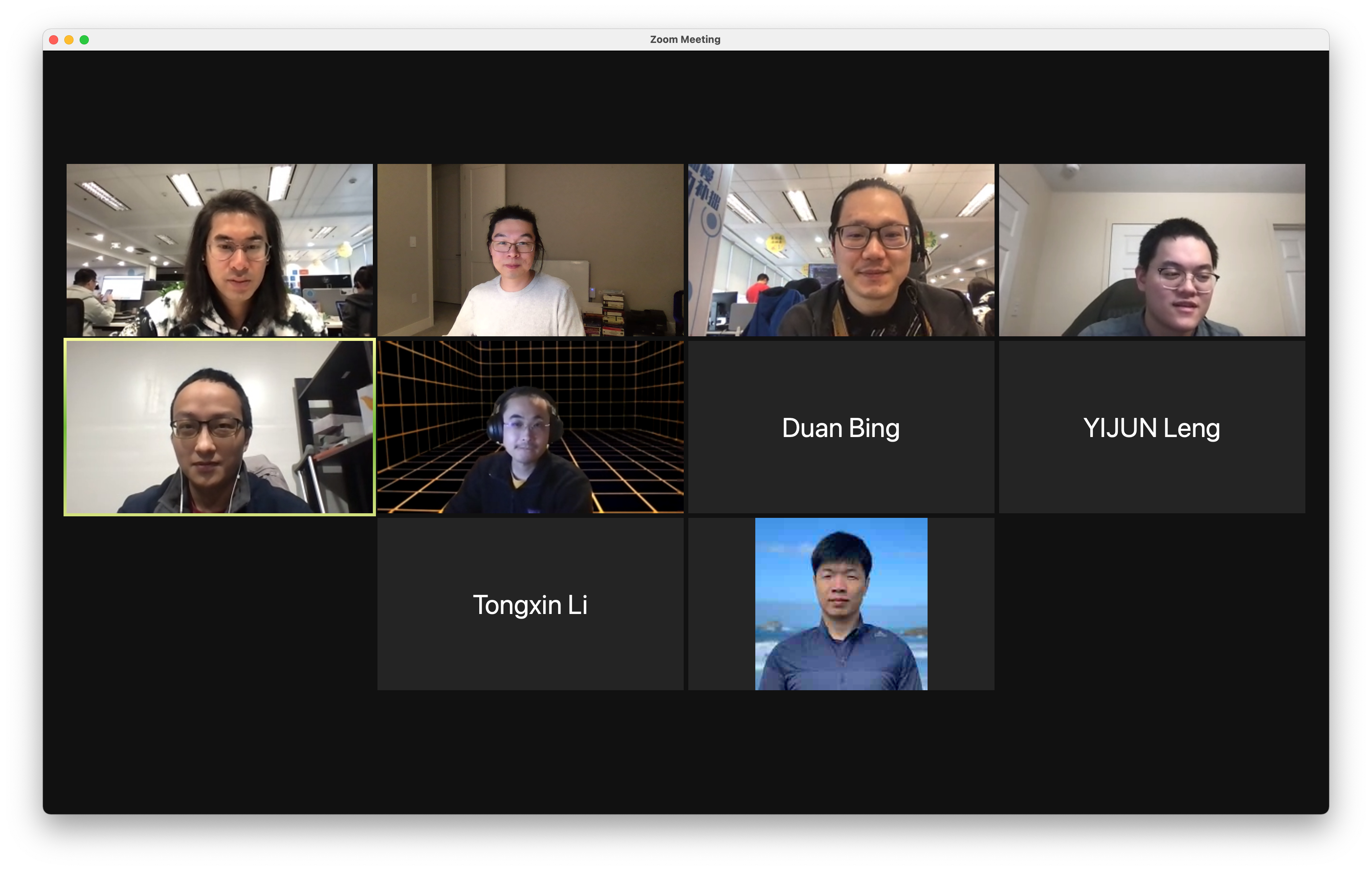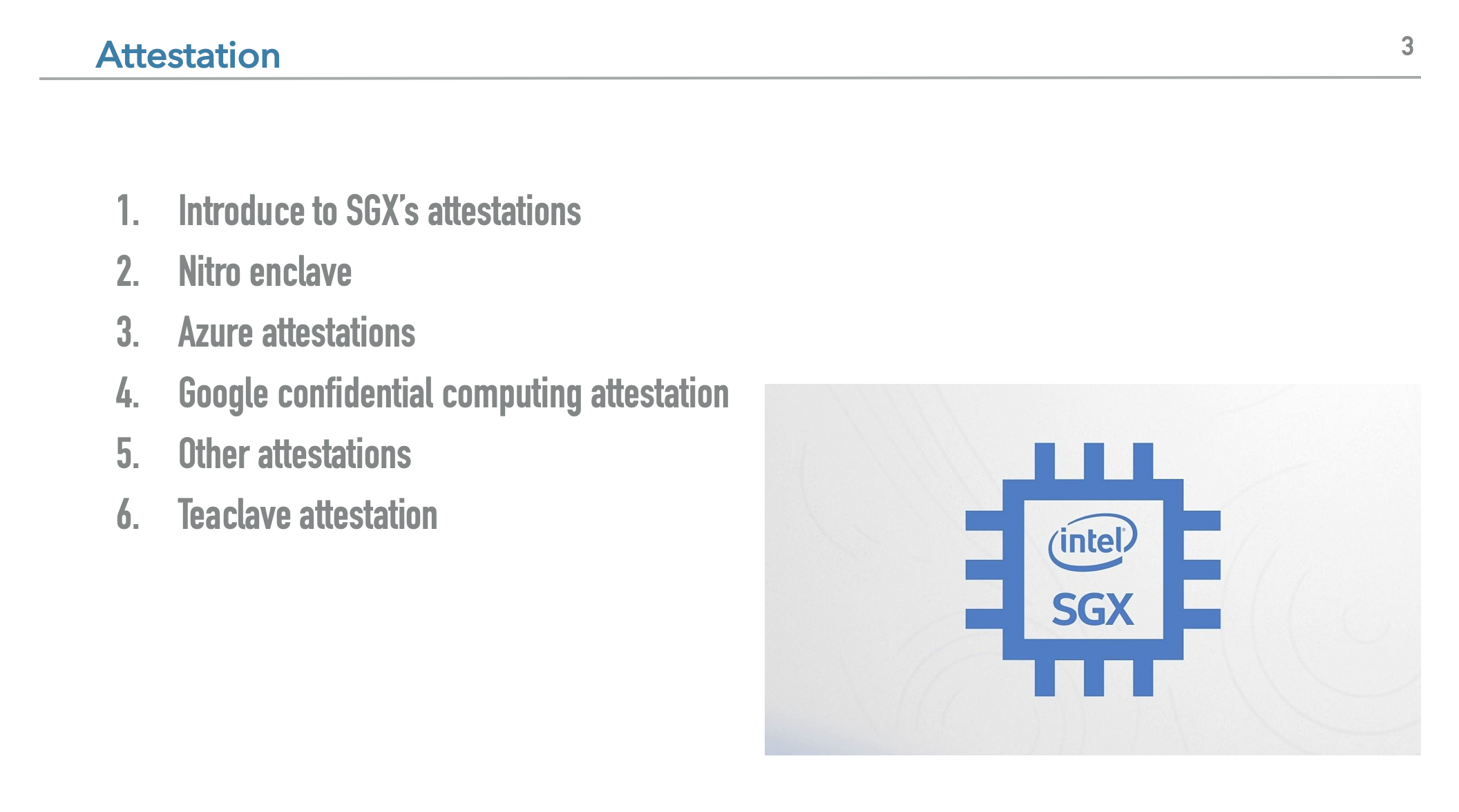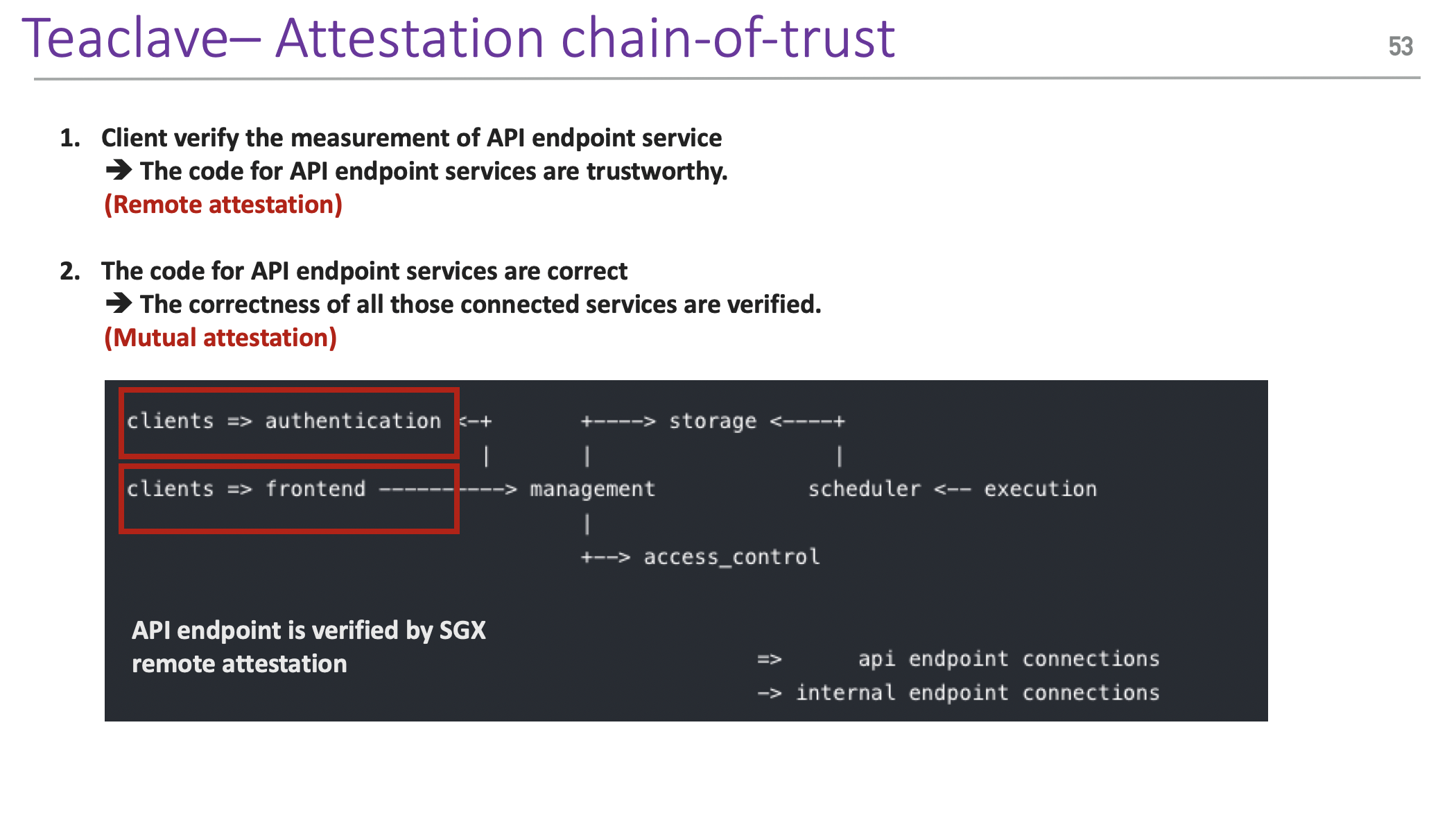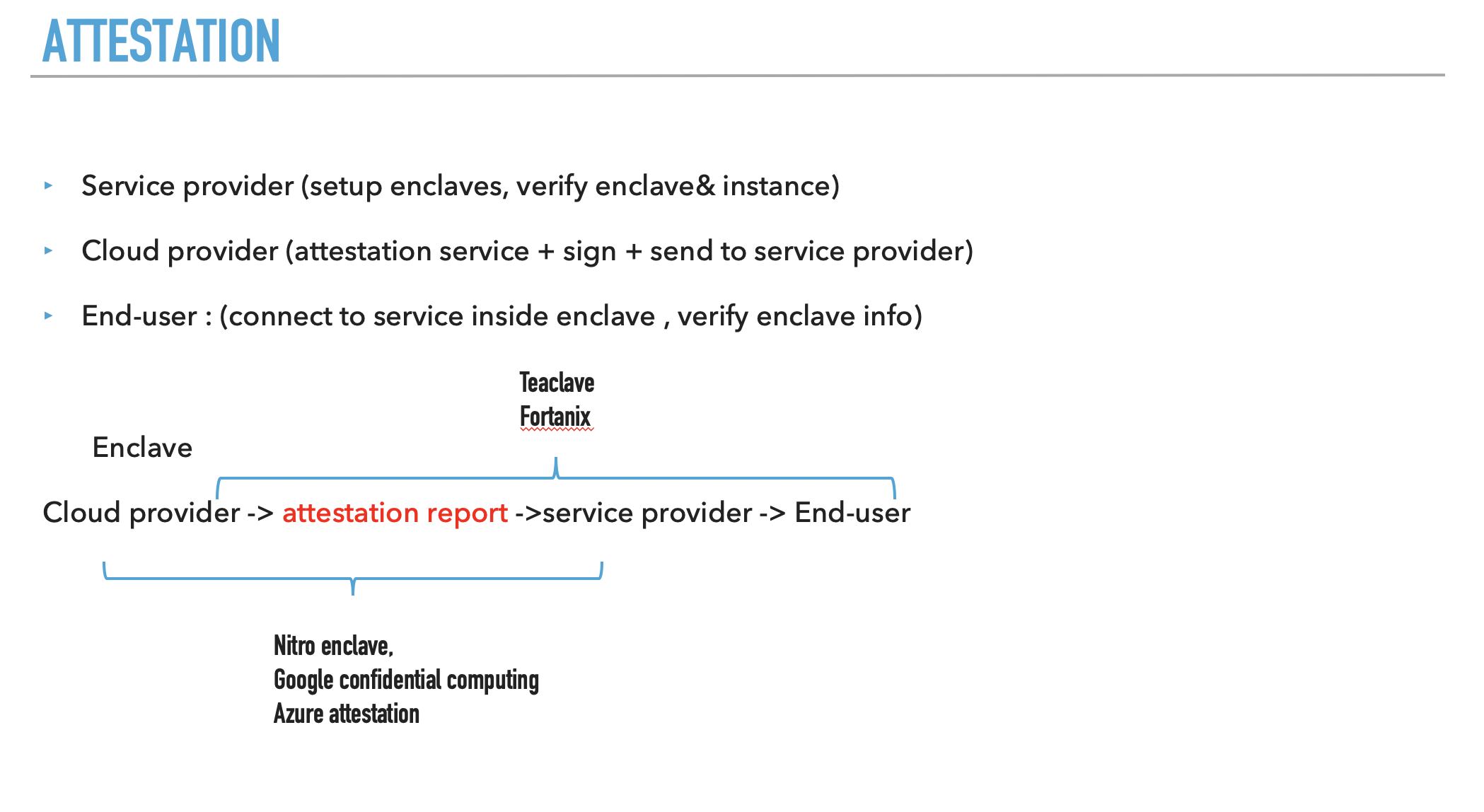In March 25, we gathered in Zoom for the third monthly Teaclave meetup. In this meetup, we're glad to have two speakers talking about some initial progress of Teaclave verification and comparison of public cloud attestation services.

# Schedule
- Recent Update of Teaclave, Mingshen (3m)
- Teaclave Verification, Sean (15m)
- Comparison of Public Cloud Attestation Services, Mengyuan Li (45 m)
# Teaclave Verification
In this session, Sean talked introduced the plan of Teaclave verification. The main ideas is to create formal descriptions, specifications, and proofs for some core components of Teaclave.
The initial effort on this field is trying to formally describe the access control module in Teaclave. And then prove it with requirements defined in Common Criteria for Information Technology Security Evaluation. The security objective of access control module is to prevent unauthorized users from accessing the critical data through tasks and functions. By achieving the security objective, the threats of runtime tasks and functions abuse are eliminated under the assumptions identified in security problem definition. With these objectives, we can find some corresponding requirements in Common Criteria, e.g., FIA_UAU.2 for user authentication before any action.
The initial work has been accepted as a separate project in Teaclave. If you are interested in this topic, please see https://github.com/apache/incubator-teaclave-verification to learn more.
# Comparison of Public Cloud Attestation Services
Then, Mengyuan talked his recent research on attestation, especially, on public cloud attestation services.

Here the abstract of the talk:
Confidential computing is an emerging security feature provided by more and more public cloud service providers (e.g., Amazon AWS, Microsoft Azure, and Google Cloud) in order to help customers protect their sensitive data in the cloud environment. Some popular confidential computing services include Intel Software Guard Extensions (SGX) enclaves and AMD Secure Encrypted Virtualization (SEV) VMs. These services are usually atop different hardware-based Trusted Execution Environments (TEE) technologies.
Meanwhile, to help convince the customers the trustworthiness of the platform hardware and the integrity of codes inside the TEE, cloud services providers also offer remote attestation services. In this talk, we will first cover the remote attestation workflow provided by some famous cloud TEE services, including Azure Open Enclave, Nitro Enclave, Google confidential computing VM and Fortanix. From the perspective of customers, we also focus on the attestation reports the customers can get. We then introduce Teaclave's current attestation design and discuss the attestation report standard Teaclave should follow.
He also discussed the attestation design of Teaclave.

In the end, he also summarized the roles in the attestation ecosystem and positions of services/products discussed in this talk.

At last, thanks for attending this meetup. I'll continue to drive this meetup and make it a monthly activity for the community. If you want to speak in the next time, please post your proposed topic in the mailing list. I'll help you to schedule the time.
